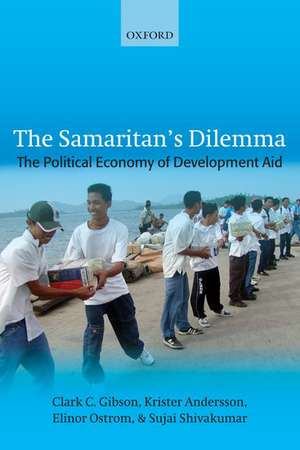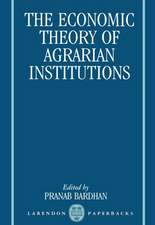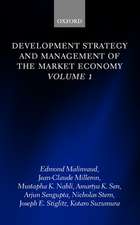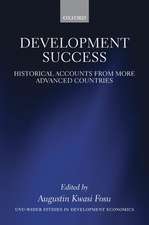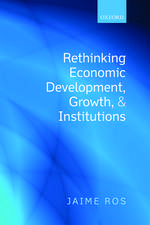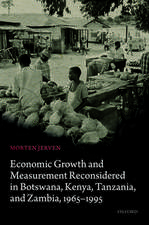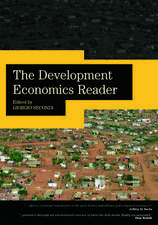The Samaritan's Dilemma: The Political Economy of Development Aid
Autor Clark C. Gibson, Krister Andersson, The late Elinor Ostrom, Sujai Shivakumaren Limba Engleză Paperback – 8 sep 2005
| Toate formatele și edițiile | Preț | Express |
|---|---|---|
| Paperback (1) | 327.14 lei 31-37 zile | |
| OUP OXFORD – 8 sep 2005 | 327.14 lei 31-37 zile | |
| Hardback (1) | 1038.03 lei 31-37 zile | |
| OUP OXFORD – 14 sep 2005 | 1038.03 lei 31-37 zile |
Preț: 327.14 lei
Preț vechi: 425.10 lei
-23% Nou
Puncte Express: 491
Preț estimativ în valută:
62.62€ • 68.04$ • 52.63£
62.62€ • 68.04$ • 52.63£
Carte tipărită la comandă
Livrare economică 09-15 aprilie
Preluare comenzi: 021 569.72.76
Specificații
ISBN-13: 9780199278855
ISBN-10: 0199278857
Pagini: 288
Ilustrații: 2 boxes, 1 table and numerous figures
Dimensiuni: 157 x 233 x 17 mm
Greutate: 0.43 kg
Editura: OUP OXFORD
Colecția OUP Oxford
Locul publicării:Oxford, United Kingdom
ISBN-10: 0199278857
Pagini: 288
Ilustrații: 2 boxes, 1 table and numerous figures
Dimensiuni: 157 x 233 x 17 mm
Greutate: 0.43 kg
Editura: OUP OXFORD
Colecția OUP Oxford
Locul publicării:Oxford, United Kingdom
Recenzii
As an increasing portion of the development community now recognizes, sending oodles of money to poor countries does not make them rich and may even make them poorer. This important book explains why. The authors' discussion is clear, straightforward, and easy to understand
Notă biografică
Clark Gibson is Associate Professor of Political Science and Director of the International Studies program at the University of California, San Diego. He is currently a member of the American Political Science Association Executive Committee. He has held positions at Indiana University and acted as a consultant for the World Bank, the United States Agency for International Development, and the Carter Center.Krister Andersson has worked with development aid issues since 1991. He has served as an international civil servant and consultant for the Food and Agriculture Organization of the United Nations, the World Bank and non-governmental organizations in Bolivia, Costa Rica and Sweden. He served as a technical advisor on environmental conflicts in Ecuador's Ministry of the Environment in 1997-1998. A postdoctoral fellow at the Center for the Study of Institutions, Population and Environmental Change (CIPEC) at Indiana University, he studies the politics of international development and environmental governance in non-industrial societies.Elinor Ostrom was Arthur F. Bentley Professor of Political Science and Co-Director of the Workshop in Political Theory and Policy Analysis, and the Center for the Study of Institutions, Population, and Environmental Change at Indiana University, Bloomington, Indiana.Sujai Shivakumar received his doctorate in Economics from George Mason University, specializing in Constitutional Political Economy, and later pursued post-doctoral research in the political economy of development at the Workshop in Political Theory and Policy Analysis at Indiana University. He is currently an official with the US National Academies' Board on Science, Technology, and Economic Policy.
